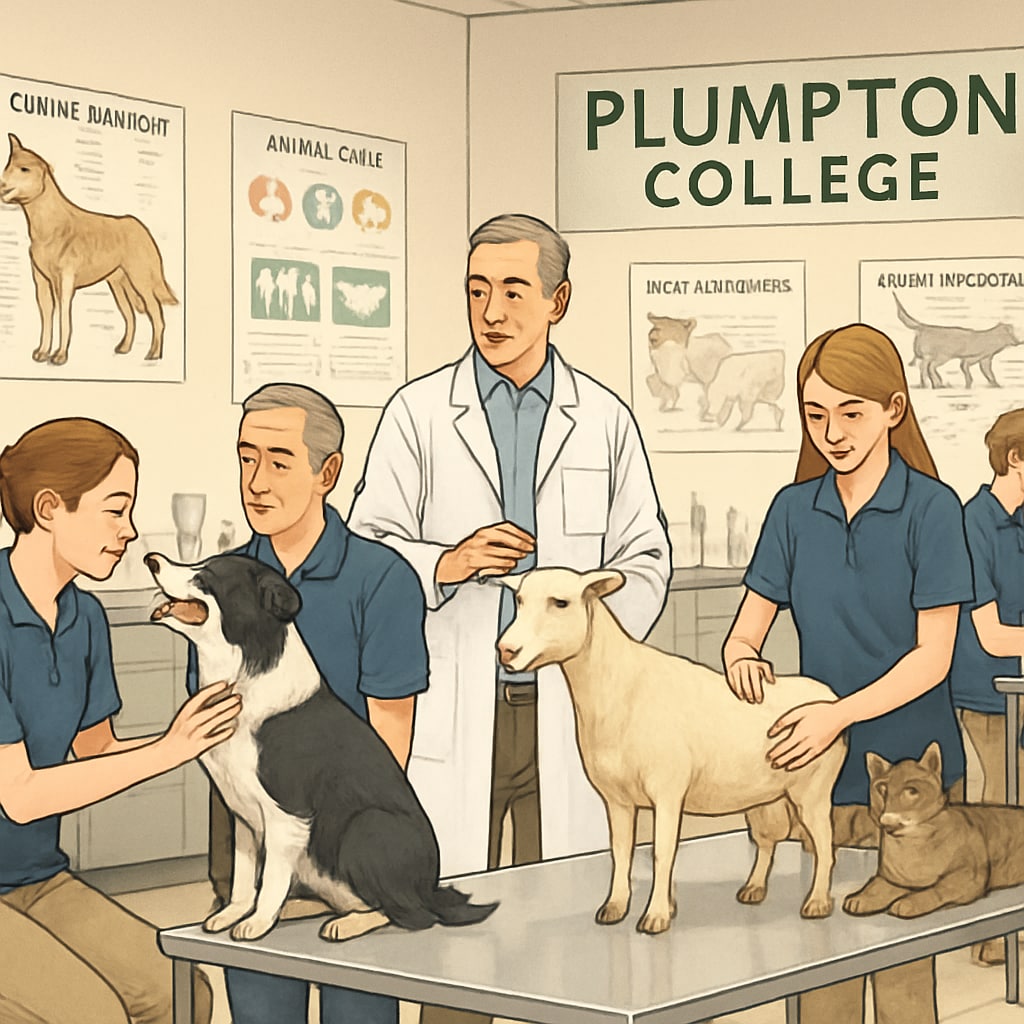When considering the future of your 14-year-old, the question of balancing Plumpton College and GCSE studies often arises. This decision, which blends vocational training with traditional academic qualifications, is critical for shaping a young person’s career path. While Plumpton College offers specialized, hands-on learning experiences, GCSE exams remain the foundation of academic achievement in the UK. In this article, we’ll explore the advantages and drawbacks of each route, offering valuable insights to help families with this important educational choice.
Understanding Plumpton College: A Vocational Approach
Plumpton College is renowned for its focus on vocational education, particularly in fields like agriculture, horticulture, and animal management. For students passionate about hands-on learning and gaining practical skills for specific industries, this institution provides a unique alternative to conventional classroom-based education.
The benefits of Plumpton College include:
- Industry-specific training: Courses are designed to prepare students for a variety of careers, offering real-world experience.
- Smaller class sizes: Students often receive more personalized attention from instructors, enhancing their learning experience.
- Pathways to apprenticeships and employment: Many students graduate with qualifications that directly lead to job opportunities or higher-level vocational training.
However, choosing a vocational path might limit a student’s exposure to a broader academic curriculum. This could make transitioning to university-level courses or fields outside their specialization more challenging.

The Role of GCSE Studies in Academic Development
GCSE (General Certificate of Secondary Education) exams represent a critical milestone in the UK education system. They serve as a foundation for further academic pursuits, including A-levels, college, and university. For many students, excelling in GCSEs opens doors to various career options, even beyond their immediate interests.
The advantages of focusing on GCSEs include:
- Comprehensive academic foundation: Subjects like English, Maths, and Science are essential for almost all career paths.
- Flexibility for future education: Strong GCSE results can provide pathways to a diverse range of academic and vocational courses.
- Recognition and credibility: GCSEs are widely recognized by employers and educational institutions.
However, the traditional GCSE route may not appeal to students who thrive in practical, hands-on environments. This can lead to disengagement or lower academic performance.

Finding a Balance: Plumpton College and GCSE Studies
For families considering both options, it is important to note that Plumpton College offers programs that integrate GCSEs with vocational training. This hybrid approach allows students to pursue their interests while also meeting academic requirements. For example, a student could study core subjects like English and Maths alongside specialized courses in agriculture or equine studies.
To make the best choice, consider these factors:
- Student interests: Does your child enjoy practical, hands-on learning, or do they excel in traditional academic environments?
- Career goals: What career paths are they considering, and do these require vocational training or academic qualifications?
- Learning style: Are they more engaged in smaller, interactive classes or larger, theory-based settings?
Consulting with guidance counselors, visiting open days, and speaking to current students can also provide a clearer picture of what each option offers.
Conclusion: Making the Right Educational Choice
Balancing Plumpton College and GCSE qualifications can provide the best of both worlds for students who are eager to explore vocational training while maintaining academic flexibility. By understanding the strengths and weaknesses of each option, families can make an informed decision that aligns with the student’s aspirations and learning style. Whether you choose Plumpton College, traditional GCSE pathways, or a combination of both, the key is to prioritize the student’s long-term goals and happiness.
For more information on the UK education system, visit Education on Britannica. To learn about vocational education, explore Vocational Education on Wikipedia.
Readability guidance: This article avoids jargon and maintains a balanced sentence length for easy reading. Lists and subheadings enhance clarity, while overused passive voice is minimized. Transition words ensure a smooth flow of ideas.


